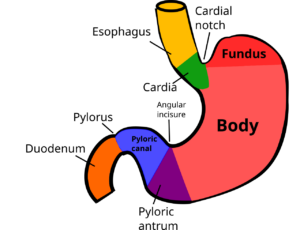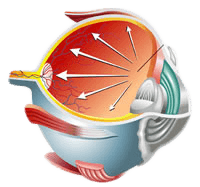Dr. Charlie Woodrow discusses the critical challenges of artemisinin resistance, its impact on malaria treatment, and the advancements in research that aim to combat this global health issue.
Transcript
[00:00:00] Interviewer: This is a podcast of the Nuffield Department of Medicine. Today we speak with Dr. Charlie Woodrow about his research on artemisinin resistance. Why is artemisinin resistance a problem?
[0:00:10] Dr. Charlie Woodrow: I think artemisinins are a one-off drug. They are the most effective, most rapidly acting anti-malarial that we have and they’re very safe and well tolerated. So losing them is a major problem. Artemisinins are used in all anti-malarial treatments for the main form of malaria that we see around the world, falciparum malaria, and they’re used in combination with a partner drug. But all treatments should contain an artemisinin. So once we start to lose that activity, which is what we see in resistance, we have major problems both in treating individual patients and in controlling malaria as a public health problem.
[0:00:49] Interviewer: And how has artemisinin resistance developed?
[0:00:52] Dr. Charlie Woodrow: So that’s a classic example of evolution. So when you treat a patient with malaria and you do not kill all the the parasites, the survivors are more likely to be resistant to artemisinin. And the reasons why that might happen relate to why treatment might fail. So, patients who don’t complete their courses, patients who just take an artemisinin without this partner drug that we need as well, and there’s also a problem with fake or substandard anti-malarials which don’t contain enough of the compound.
[0:01:25] The other big factor is the immune system. So we tend to see artemisinin resistance appearing in areas where patients have low immunity, what we would call low transmission settings. So that’s outside Africa. Resistance has generally tended to appear in Southeast Asia or South America. And for artemisinins, it has been Southeast Asia because the drug has been made in China for much of its lifespan. And so, the local availability of artemisinins has been high. And so eventually, because of evolution, we see resistance developing.
[0:02:00] Interviewer: How can we counter these resistance strains?
[0:02:02] Dr. Charlie Woodrow: So the simple thing is to give treatments correctly. So these artemisinin combination therapies to make sure that when we’re giving them, patients are completing the courses and that their infections are being cured. We can choose the partner drug that is used in combination with the artemisinin carefully to make sure that there is still efficacy for the partner drug and that’s more slower acting anti-malarials like Mefloquine or Lumefantrine. And then in the future we have to think about other alternatives. So, when we look at infections like HIV and TB, we would always treat those with three drugs and that’s a possibility for the future of malaria, although difficult to achieve in reality.
[0:02:46] And beyond that, new drugs, but there are very few available at the moment.
[0:02:53] Interviewer: What are the most important areas of research that have developed in the last five to ten years?
[0:02:58] Dr. Charlie Woodrow: So I think the main area of research in this field has been the documentation of artemisinin resistance in the field. There was theoretical discussion about this before, but it’s quite clear that there is artemisinin resistance in the ring stage of the parasite. That’s a certain subset of the life cycle and that that’s developed across a wide area of Southeast Asia.
[0:03:21] And then more importantly, in the last couple of years, we’ve understood this form of resistance and we’re beginning to understand in biological detail what the mechanism is and that’s important for several reasons. I think the first one is just to convince everybody that it’s a major problem.
[0:03:40] If you can say this mutation in a particular gene happens with artemisinin resistance, then it’s much easier than the more conceptual idea that the parasites don’t respond so well in people.
[0:03:54] And then understanding the mechanism, which in simple terms is a mutation in a particular protein which is called the Kelch 13 protein then allows us to study where resistance has spread to using quite simple techniques.
[0:04:12] Interviewer: Why does your line of research matter? Why should we put money into it?
[0:04:15] Dr. Charlie Woodrow: Understanding artemisinin and resistance both in terms of how far it’s spread across Southeast Asia at the moment and what the mechanism is, is fundamental to understanding how to treat patients, how to treat populations and how to eliminate malaria, which is a new goal that has been promoted by funding bodies and governments across the region.
[0:04:40] So I think the main issue is how do we manage malaria over the next 20 to 30 years. If we don’t understand why parasites respond well or poorly to artemisinins, that’s going to be very hard.
[0:04:54] Interviewer: And finally, how does your research fit into translational medicine within the department?
[0:05:00] Dr. Charlie Woodrow: So I think continuing on that idea of elimination, I think this is the new goal for control of malaria in Southeast Asia. And having the means to be able to look at how artemisinins are operating in remote areas, I think is the biggest advance in the last year. So, we can take some blood that has been stored on a piece of paper, bring it to a central lab and using fairly simple forensic techniques, which is the polymerase chain reaction, PCR, we can actually determine whether parasites from rather remote areas, for example in Myanmar, which are very difficult to access with normal clinical studies, are resistant to artemisinins.
[0:05:45] So I think that’s having a big effect in terms of control programs, in choosing how they treat malaria. And we’re also seeing lots of effects in terms of how people do science. So, we work with students and researchers from areas in Myanmar and other emerging countries in terms of economies and they are now able to understand what’s happening in their country in a way that just wasn’t possible two or three years ago.
[0:06:17] Interviewer: Okay, thanks very much.
[0:06:19] Dr. Charlie Woodrow: Okay, thank you.






